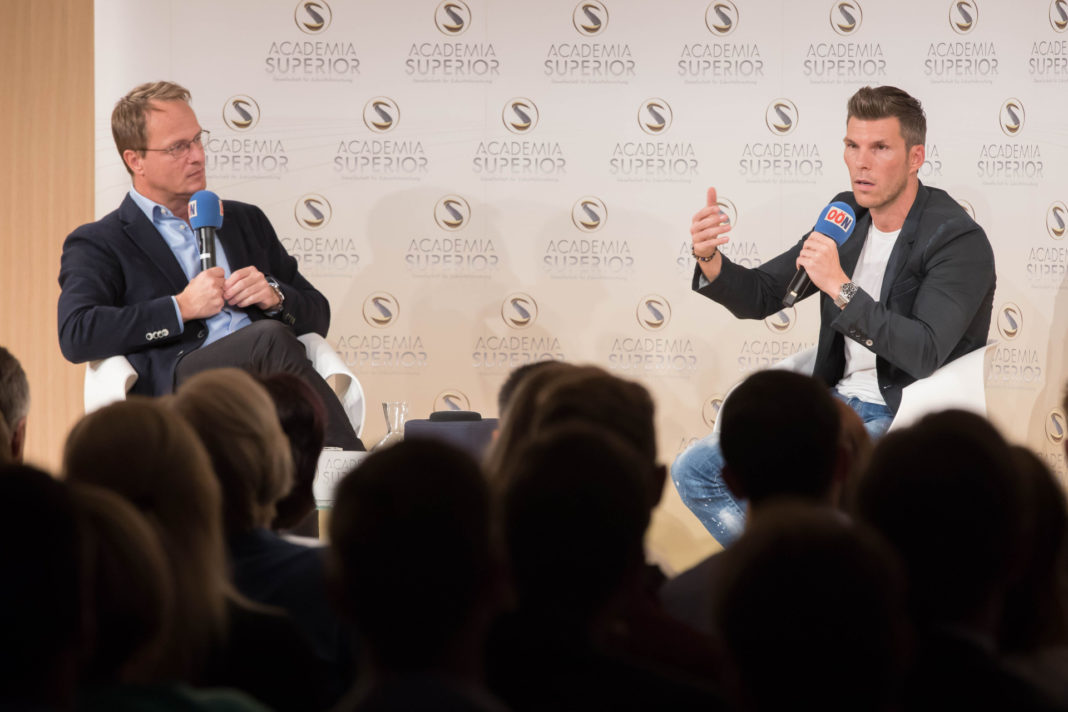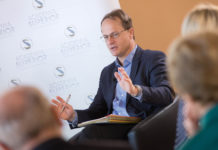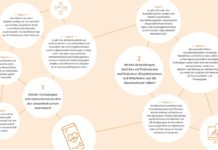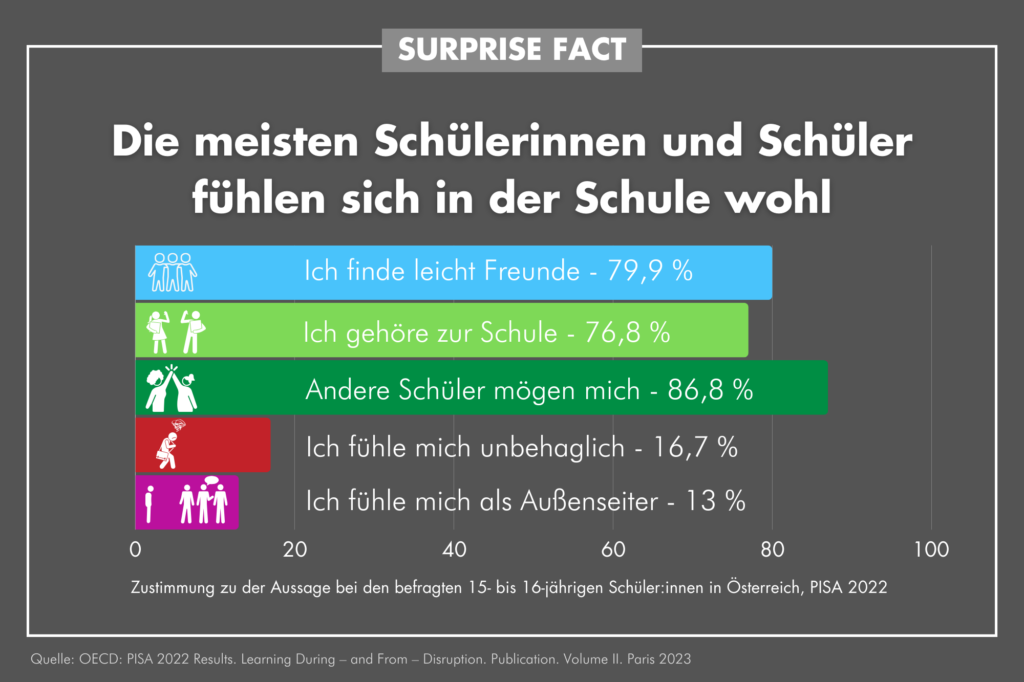ACADEMIA SUPERIOR invited „Mr. Runtastic” Florian Gschwandtner to a talk with Markus Hengstschläger to present his new book „So läuft Start-Up”. They talked about individual stages of his life, the lessons he draws from them and what developments he sees coming in the future.
Lessons from Austria’s most successful start-up
In 2009, the Runtastic app went online for the first time. „The download numbers immediately exceeded everything we had ever hoped for,” said Runtastic CEO Florian Gschwandtner at the presentation of his newly published book. Gschwandtner and his three co-founders created Runtastic, the Austrian flagship company in terms of digital start-up. Meanwhile, the app is on tens of millions of smartphones worldwide, the sports manufacturer Adidas bought the company in 2015 for 220 million euros and Florian Gschwandtner recently announced that he will retire at the end of the year as CEO of Runtastic.
Taking the easy way rarely brings success
The attitude „that I have to do something, that I must have income to enable me to do what I like or want to do”, was already given to Gschwandtner in his childhood at the parental farm. During his later studies at the Universities of Applied Sciences in Hagenberg (Mobile Computing) and Steyr (Supply Chain Management) he „had to work hard — especially in Hagenberg — to be able to keep up. Programming has never been easy, and I’ve made many mistakes, „said Gschwandtner. But he wanted to make it and was ready to go „a lot of extra miles”.
When fellow students approached him with a business idea — the GPS tracking of sailing ships — Runtastic’s later four-person founding team was formed. „We quickly realized that our first idea did not work and switched to recording running data because it’s more inclusive. First, we wanted to dig recording stations on fixed tracks, then came the technology and the idea of GPS tracking on a smartphone”, Gschwandtner said. The rest is history — a success story.
What did he learn from all this? „First of all, if you really want to change something, you have to be willing to invest time. If you don’t work, you will not achieve anything”. An idea is only about 5–10% of the success, the rest is hard work, according to Gschwandtner. The early thinking of scalability is the second major success factor: „What you always should think about is how you can make money out of what you do someday. One should not talk yourself down and just try to realize his ideas”.
But you also have to recognize quickly, when an idea leads to nothing, and then switch to something else. „Start fast and fail fast” — was his advice to future business founders.
Autonomous driving and speech recognition become game changers
Asked about the big changes we will see in the future, the Runtastic CEO said: „I think autonomous driving and speech recognition will soon change everything. And faster than we believe today”. Gschwandtner warned against simply allowing the development to happen by itself: „Every sixth job in Austria somehow depends on the automotive and supplier industries. I have the bad feeling, that we will lose a lot to companies like Uber or Google in the future. They lead the development of digital content that will be the essence of the next generation of vehicles”.
But according to Gschwandtner, there will also be other social consequences: „Twenty percent of a cities area is occupied by cars today. In the future, cars park overnight in parking garages on the outskirts of the city and only come into the city during the day to drive people from A to B. That will change the cityscapes enormously”, the CEO was convinced.
Gschwandtner attaches similar importance to the development of speech recognition: „Today we are used to typing everything into devices, but that will soon no longer be necessary. Then we talk to the devices”. That would revolutionize our handling of machines, he was convinced. „What we really miss for a successful handling of these developments, however, are the technicians. We also have to change as a society and become more open-minded and, for example, do not scare off girls from engineering education”, concluded Gschwandtner.
Do not have a plan
The plan of Florian Gschwandtner for the time after Runtastic is first and foremost to have no plan. He wanted to consciously spend the time, trying out a few new things and traveling. He does know that this will not be easy for him at the beginning, but it is a chance for a time-out that he does not want to miss.







